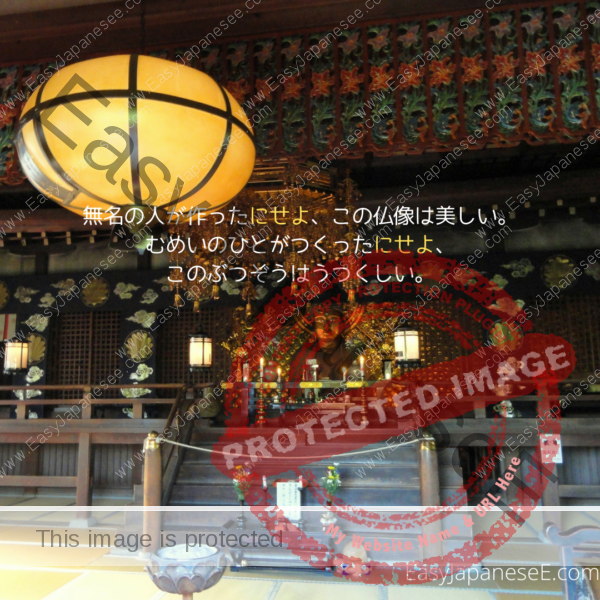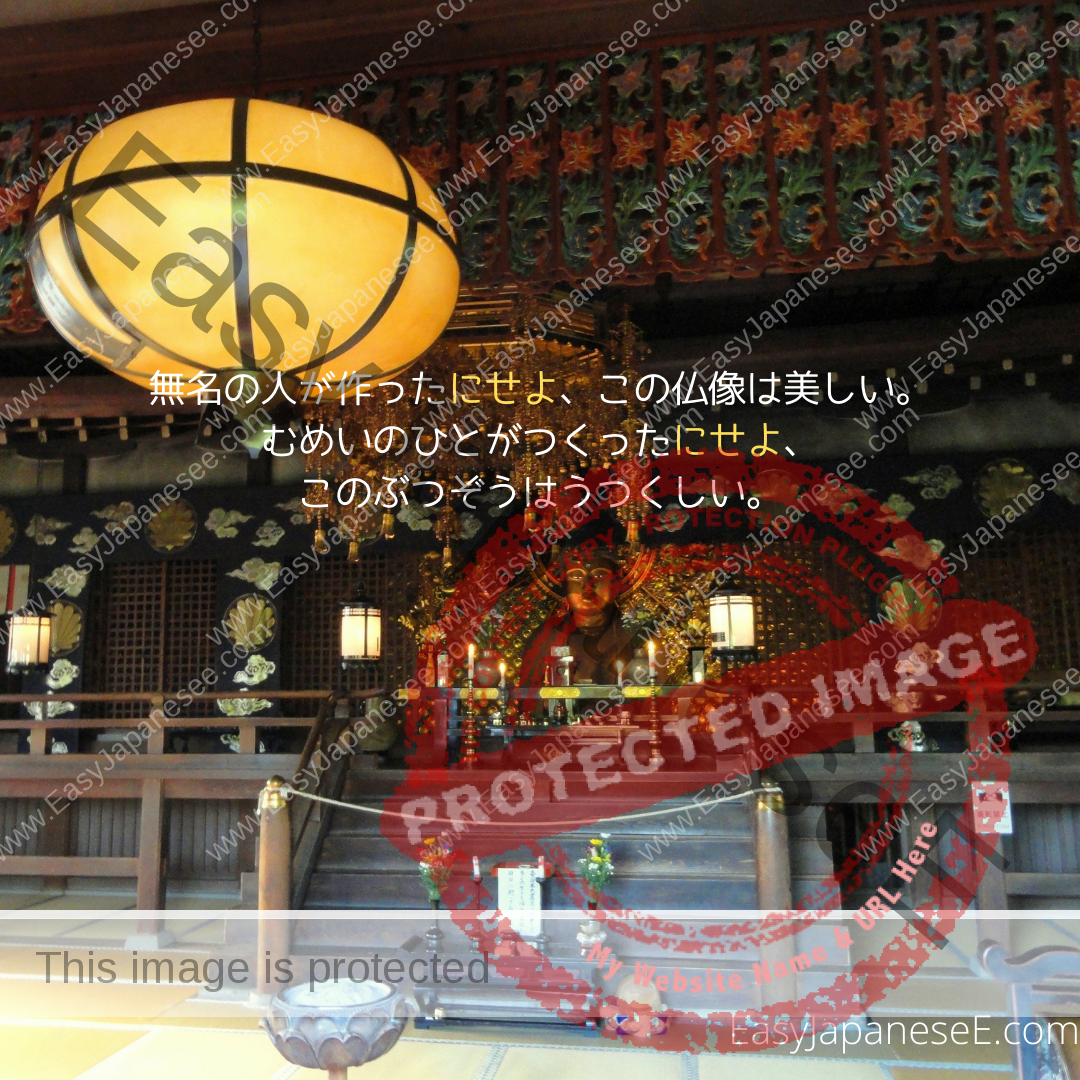
Today’s Grammar Point: ~にしろ/~にせよ/~にしても
~にしろ、~にせよ、~にしても are all used to express a concession, “even if ~” or “though ~.” Sometimes にしろ/にせよ/にしても can be repeated with 2 totally opposing phrases in a sentence.
Connection
- [plain form verb] + にしろ/にせよ/にしても
- [いadjective stem] い/かった + にしろ/にせよ/にしても
- [なadjective stem] (である/であった)+ にしろ/にせよ/にしても
- [noun](である/であった)+ にしろ/にせよ/にしても
Examples
無名の人が作ったにせよ、この仏像は美しい。(Today’s caption)
This Buddha statue is beautiful, even if it was made by an unknown person.
どうせ負けるにしろ、試合では全力を尽くしたい。
どうせ負けるにせよ、試合では全力を尽くしたい。
どうせ負けるにしても、試合では全力を尽くしたい。
Even if I lose, I want to do my best in the match.
子どもがやったにしろ、許せない。
子どもがやったにせよ、許せない。
子どもがやったにしても、許せない。
I can’t forgive it even if it was a child who did it.
テストが難しかったにしろ、0点とは情けない。
テストが難しかったにせよ、0点とは情けない。
テストが難しかったにしても、0点とは情けない。
Even if the test was difficult, it’s a pity that you’ve got 0 points.
こちらのミスにしろ、そんなことを言われるいわれはない。
こちらのミスにせよ、そんなことを言われるいわれはない。
こちらのミスにしても、そんなことを言われるいわれはない。
Even if it was our mistake, it is unreasonable to receive such words.
本当にしろ嘘にしろ、そんなことをいう権利はだれにもない。
No one has the right to say that, whether it’s true or false.
父と無理やり結婚させられたにせよ、そうでなかったにせよ、母はそれなりに幸せだったと思う。
Whether she was forced to marry my father or not, I think my mother was reasonably happy.
たとえそうであったとしても、そうでなかったとしても、私の決心は変わりません。
Even if that was the case or not, my decision won’t change.
If you liked this article, please share it with your friends using the social media buttons below. Also, your clicks on ads on this page help covering the cost of running this website. Your support will be much appreciated.

